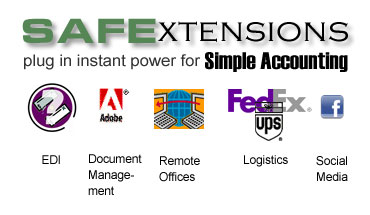It is important to remember that although most of the data entry fields for each vendor are duplicated in a contact record they are not the same, and that although information entered into a contact record can update the corresponding fields in the vendor record, the reverse is not true -information from the vendor file does not update contact records, even if they are linked together. For example, let’s say you have several contacts within the same firm. The firm becomes a vendor so you convert one of the contacts to a vendor and assign the rest to that Vendor ID as described in the FILES|Contacts topic. Now lets suppose that the vendor moves their offices to a new location and you change the address in the vendor record. The address of each contact linked to that vendor will remain unchanged -you must manually update the address of each contact.
Once a vendor and a contact are linked together, they can share the same activities, and key data between them such as LAST MAIL DATE and LAST CALL DATE so you can be certain that you are looking at the most recent activity for the vendor whether it was entered directly into the vendor record, or through one of its linked contacts. This can help you avoid duplicate mailings where only one copy of a letter should be mailed to a company regardless of how many contacts you have within the organization.
If there are no contacts linked to a new vendor, Simple Accounting asks you if you would like it to create one before saving.
You can use drag-and-drop from the Vendors browse to the Contacts browse to either automatically create a linked contact, or to automatically update the contacts address from the vendors. If you drop the vendor onto a linked contact, you are asked if you would like to update the address. If you drop to another contact record, you are asked if you would like to create a new linked contact.



